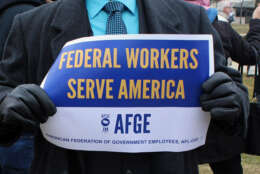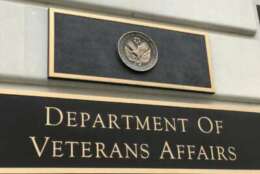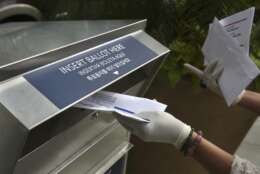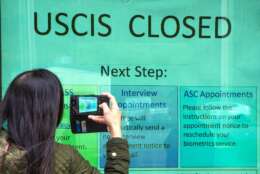Unions
-
The Federal Labor Relations Authority issued three recent decisions on behalf of three separate departments, all of which will likely give agencies more power at the collective bargaining table.
October 06, 2020 -
The way things seem to be going between Department of Veterans Affairs management and the American Federation of Government Employees, contract negotiations could outlast the pandemic.
September 30, 2020 -
Military members and federal employee groups worry those impacted by the president's mandatory payroll tax deferral aren't getting the message about the extra dollars they're seeing in their paychecks -- and that they'll have to pay it all back next year.
September 28, 2020 -
In a collective bargaining dispute between the National Treasury Employees Union and the U.S. Patent and Trademark Office, an arbitrator said the agency committed unfair labor practices by implementing pieces of the president's 2018 workforce executive orders. Those practices, the arbitrator said, also run contrary to a longstanding federal labor-relations law.
September 23, 2020 -
President Donald Trump has issued an order that he said will expand a ban on the use of federal money for certain diversity training
September 22, 2020 -
When our nation needed them most, our veterans ran toward the problem and put their country first -- they deserve the best care possible.
September 21, 2020 -
When do you tell tens of thousands of public servants, from Social Security, the IRS and a dozen other operations, that after several months of working from home it's time to return to their “real” and traditional offices?
September 08, 2020 -
Both federal civilian employees and active-duty military members will see temporary changes to their take-home pay as a result of the president's tax deferral, a senior administration official told Federal News Network. Though civilian employees and the military will see savings later this month, they're expected to pay back deferred taxes starting next January.
September 04, 2020 -
Much of the agency is still teleworking, but the Social Security Administration told field office employees this week it would begin to recall some to help with the mail and other workloads. But the union representing field office employees says SSA's reentry plans are light on health and safety details.
September 03, 2020 -
In an email sent to some civilian workers Tuesday, a large defense agency said no federal employee, department or payroll provider will be able to opt out of the president's upcoming payroll tax deferral planned later this month. All federal payroll providers are expected to "act in unison."
September 02, 2020 -
The Social Security Administration will indefinitely require members of the public to make appointments for in-person services that can't be done online or over the phone, the agency said in its new "resposturing plan." Telework will also continue for most employees.
August 21, 2020 -
For the past few weeks pundits, columnists and commentators, some of whom wouldn’t know a letter carrier from a clerk or mail handler, have been discovering and dissecting the U.S. Postal Service.
August 20, 2020 -
The American Federation of Government Employees says it's still in dark about the Social Security Administration's reopening plans. Employees have been slowly and gradually returning to SSA field offices since April, the union said.
August 18, 2020 -
In today's Federal Newscast, the America Federation of Government Employees is making a final push to protect Defense Department employees’ right to unionize.
August 18, 2020 -
In today's Federal Newscast, the union representing USCIS employees is disappointed Congress left town for August recess before passing emergency funding for the agency.
August 17, 2020














